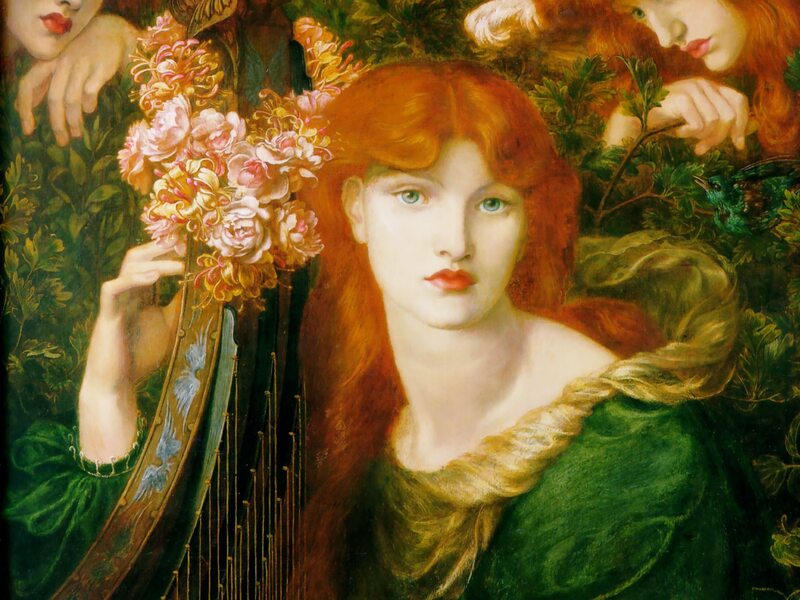
In 1821, a revolutionary, poet and lover of Dante's poetry arrived in London. Gabriel Rossetti was a poor refugee from Italy, shaken by the revolutions. More than three decades later, his son Daniel Dante Rossetti, along with a group of British artists, revolutionized the aesthetics of the Victorian era. The Pre-Raphaelites changed elite tastes in painting, poetry, fiction, and visual aesthetics. This aesthetic revolution was greatly influenced by the artistic personalities of the Rossetti clan. The exhibition, which after the Tate Gallery in London, can be seen in the Delaware Art Museum in the USA, talks about their paintings, poetry and life.
Pre-Raphaeliteism is a movement in 19th-century British painting that challenged the previously dominant classicism. The British Empire, which was gaining strength in the 18th century, adopted the styles of Greece and Rome as appropriate to its superpower ambitions. The gleaming white marble and engravings of ancient heroes have simply worn away after many decades of dominance. And then a group of Pre-Raphaelites, led by Daniele Dante Rossetti, called for a renewal of the painting tradition at the junction of the Middle Ages and the Renaissance. It was perfectly combined with the literary fashion of romanticism and taking the Christian faith seriously.
Unlike previous exhibitions on the Pre-Raphaelites, the current exhibition, entitled “Rossetti”, focuses on four characters from an extraordinary Italian family who delighted the English. These are the most important of the family, Daniel Dante Gabriel (painter and poet), his sister Christina (author of many poems), their brother William (art critic) and finally Elizabeth Siddall – the phenomenally beautiful wife of Daniel Dante.
Rossetti's approach to art, love and lifestyle was considered revolutionary by their contemporaries. The exhibition was shown in London in the autumn, where I had the opportunity to see it, and now it is on display in America, a country whose painting was greatly influenced by the Pre-Raphaelites in the 19th century.
(tags translated)Daniel Dante Rossetti
